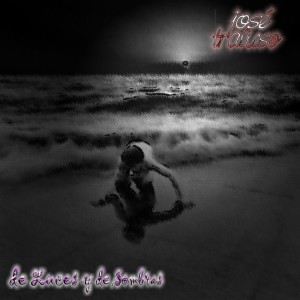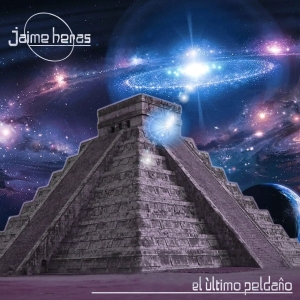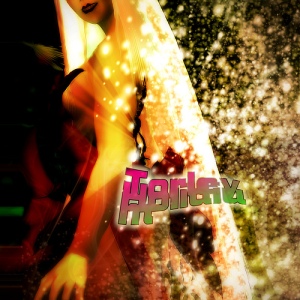 Welcome to Lyrical April 2016. This year, as with last, I’m not only sharing music with vocals that you might like to write to, but deliberately sharing Free Culture music with, for the most part, easy-to-discern lyrics, so that you have four more albums’ worth of lyrics to quote in your books, if any of them catch your fancy. This year, it’s very Free Culture, with only one of the three albums carrying a Share Alike restriction. That’s right, three of the four albums, including today’s, only requires attribution for you to create any kind of derivative work!
Welcome to Lyrical April 2016. This year, as with last, I’m not only sharing music with vocals that you might like to write to, but deliberately sharing Free Culture music with, for the most part, easy-to-discern lyrics, so that you have four more albums’ worth of lyrics to quote in your books, if any of them catch your fancy. This year, it’s very Free Culture, with only one of the three albums carrying a Share Alike restriction. That’s right, three of the four albums, including today’s, only requires attribution for you to create any kind of derivative work!
This is also an album, and frankly a group, that I personally have saved from vanishing from the internet. That is not an exaggeration.
lo-fi is sci-fi was a duo comprised of Chris Zabriskie and Marc With A C that put out four excellent albums from 2006 to 2008, and appear to have kept planning more projects through at least 2012, though nothing appears to have come of that. They had all four albums available on BandCamp, as well as a website for the project, and all of that is now gone. Vanished. I have no idea what happened, but the two appear to have parted ways for personal reasons, and pulled their collaborative work from availability.
I don’t care what the reasons were for ending the project, that’s not my business. What I do care about is that four brilliant albums, albums with Free Culture licenses, were pulled from public availability. One of the main reasons for Free Culture licensing, so far as I am concerned, is to enable works of art to achieve longevity even without popularity or institutional support. A digital release is not something you’ll find used, hanging around old book or CD shops. If it’s not posted somewhere, preferably to a stable place like the Internet Archive, it’s gone. (Insert rant about Jamendo being hideously unreliable and dishonest here.)
Wait, you’re thinking, if these albums vanished, how in hell did Fleming preserve them? And no, the answer is not, alas, that I snagged the lossless FLAC files from BandCamp while they were available. I only discovered lo-fi is sci-fi after their disappearance. How?
Well, the memory-holing of the band’s work was slightly incomplete. Their albums were posted to the Free Music Archive. And at least some effort seems to have been made to pull them from there, but it didn’t take. If you try to find the band’s page, or the album pages, you get kicked to FMA’s main page.
But. If you pull up individual track pages, or search the band name , you can download the MP3s one by one.
And so I did that.
Also, thanks to the Archive’s Wayback Machine, I was able to view the band’s site as it existed in 2013, verify that I got all tracks to all albums, and get copies of all four album covers.
But that’s all background, and you likely don’t care. What about the actual music?
To start with, when I first ran across them, I heard one song that I loved, found the band name, and almost immediately realized I was going to like most everything they did.
Why?
I’m 90% certain that the band’s name is a reference to an album by one of my personal favorite bands, Dramarama, whose last album cut before breaking up (and later re-forming) was hi-fi sci-fi.
And as I’ve been exploring their body of work, that reference is appropriate. They don’t sound much like Dramarama, but they have the same pop cultural, metatextual sensibilities. There are a lot of science-fiction themed tunes, including “The Stars Are Closer Than You” on today’s album, as well as “You’re Assuming the Gravity Wouldn’t Crush You Instantly” on their last one, among others.
As to pop culture, consider that the band’s songs include “Joss Whedon”, “I’m On A Talk Show”, and “The Script You Wrote is Terrible”.
The Black Hole is their first album. And it is as good as any of their others, excepting possibly their last. Possibly.
The recordings manage a complexity of effect despite being produced with relative simplicity. Consider the first track, “You’ve Got The Body + I’ve Got The Brains”. It sounds like a practice session for a Broadway show tune done, at first, with just a piano for backing. It grows more complex as it goes on, but it’s still done relatively simply.
It is entirely satisfying and stands up brilliantly to repeat listens.
And the entire album is like that. It just works, each song, and as a whole.
Download The Black Hole by lo-fi is sci-fi free from the Internet Archive.

The Black Hole by lo-fi is sci-fi is licensed under a Creative Commons Attribution 3.0 Unported License.
 After noting two weeks ago that I share very little classical music, I’m now flooding you with it, with a second album of solo classical piano in less than a month.
After noting two weeks ago that I share very little classical music, I’m now flooding you with it, with a second album of solo classical piano in less than a month.











![[cover] Hiroumi - Kokoro No Furyoku](https://blindslapstick.files.wordpress.com/2014/07/cover-hiroumi-kokoro-no-furyoku.jpg?w=300&h=300)
![[cover] GONZO GONZALES - Nothing but Gonzo](https://blindslapstick.files.wordpress.com/2014/06/cover-gonzo-gonzales-nothing-but-gonzo.jpg?w=300&h=282)



